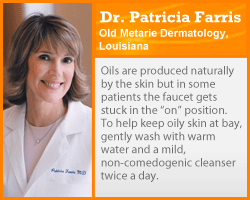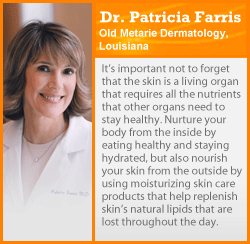Many people love shiny cars, shiny hair and shiny jewelry, but a shiny face rarely receives the same appreciation. If your face is constantly shiny, you probably have oily skin. The oil your skin produces helps keep your skin moisturized, but if your body produces too much oil, it can cause acne. However, there is a silver lining -- oil keeps skin smooth and moist, making it less likely to wrinkle [sources: Balch, Poirot].
Oily skin is largely hereditary -- if you have oily skin, it's probably because your parents have oily skin. But excess oil can also be the result of heightened hormone levels, which is why teenagers often have acne. This is also the reason that women tend to have oilier skin during some parts of their menstrual cycle, while they're pregnant and when they're experiencing menopause [source: Reader's Digest, Poirot].
Advertisement
Oil, or sebum, is produced by sebaceous glands and secreted through pores, and if your glands secrete excess oil, there's not much you do to stop it. You can, however, control it. There are cleansers, astringents and other treatments that can help keep your face sheen-free. However, you need to make sure you use them correctly -- the last thing you want to do is dry out your skin. If you do, it'll kick your sebaceous glands into overdrive. Keeping your skin healthy and your oil levels balanced can be difficult, but it is possible.
For more information about oily skin treatments, read Oily Skin Treatments: Fast Facts.
Keep reading to learn what causes oily skin.
Advertisement


